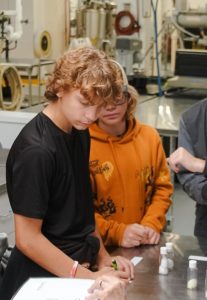 Follow along as high school students from PK Yonge Developmental Research School in Gainesville, Florida learn about how professionals in food science, nutritional sciences, and dietetics shape what and how we eat, as well as keep us safe from foodborne pathogens.
Follow along as high school students from PK Yonge Developmental Research School in Gainesville, Florida learn about how professionals in food science, nutritional sciences, and dietetics shape what and how we eat, as well as keep us safe from foodborne pathogens.
When you’re in high school, the career possibilities are endless. Yet it can be hard to make an informed choice about your career path without exposure to many different options. Professionals in food science, nutritional sciences, and dietetics often discover their fields through happenstance or word-of-mouth, making students less likely to actively pursue these scientific areas.
The Food Science and Nutrition Department at the University of Florida aims to change this trend. This fall, the department invited chemistry students in grades 10, 11, and 12 at PK Yonge Developmental Research School to engage in interactive, hands-on experiences. FSHN faculty members led three informative sessions designed to educate the students about their research areas. In addition, the faculty members introduced the students to the mechanics and applications of food science research.
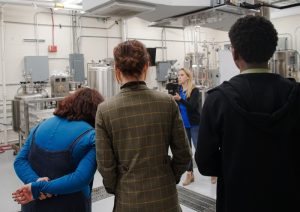
Dr. Katherine Thompson-Witrick shares her passion for fermentation
In the first session, Dr. Katherine Thompson-Witrick treated the PK Yonge students to a tour of the UF/FSHN Pilot Plant. The students examined the equipment Dr. Witrick uses in her experiments on fermentation processes and flavor chemistry.
During the session, Dr. Witrick explained how her graduate students use each piece of equipment in their individual research projects as well as the research conducted in a traditional lab environment. She emphasized the importance of having real-world industry experience in addition to academic knowledge. The PK Yonge students were excited to learn how they can actively participate in the food science field.
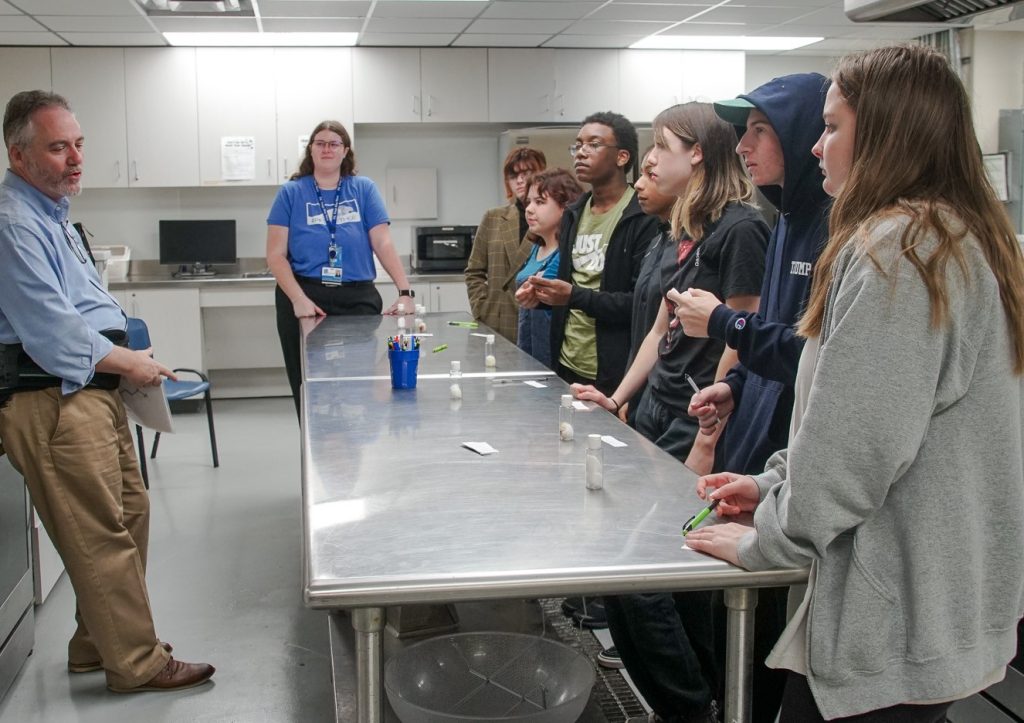
Dr. Keith Schneider engages students in a blind test
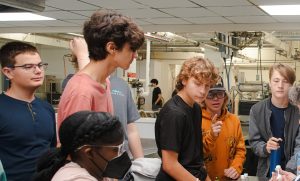
Taste and smell are interwoven in everything we eat, and Dr. Keith Schneider gave the students a hands-on opportunity to discover the connection for themselves. In an initial test, the students joined a blind smell/aroma test in which they smelled different scents commonly found in food products and tried to identify them.
After sharpening their noses, the students once again embarked on a blind test of flavor. Dr. Schneider instructed them to hold their noses while eating candy. Surprisingly, the students found they couldn’t taste the candy at all. Only after they unplugged their noses and ate another piece of candy could they detect the hit of flavor.
In this moment of experiential learning, the students discovered how taste and smell are closely intertwined. Dr. Schneider’s expertise in flavor chemistry gave the students a front-row seat to how science influences the way people perceive taste. They left the session with a deep understanding of how this information is valuable to food companies as they create new products.
Dr. Charles Sims explores the widespread power of sensory panels
Along with FSHN alumna and Sensory Panel Manager Katlyn Nau, Dr. Charles Sims explained how the UF/FSHN Sensory Lab is a teaching and research facility. Projects conducted in the lab provide sensory analyses for food companies, allowing them to test their products and gain feedback on taste, smell, appearance, desirability, and more.
The PK Yonge students enjoyed an extensive tour of the Sensory Lab. During the tour, they learned how Dr. Sims, Katlyn, and their team run weekly high-volume panels for companies and universities across the country. The data these panels yield influences nationwide decisions concerning food research and production.
Many thanks to the PK Yonge students who engaged in these sessions with curiosity and drive!
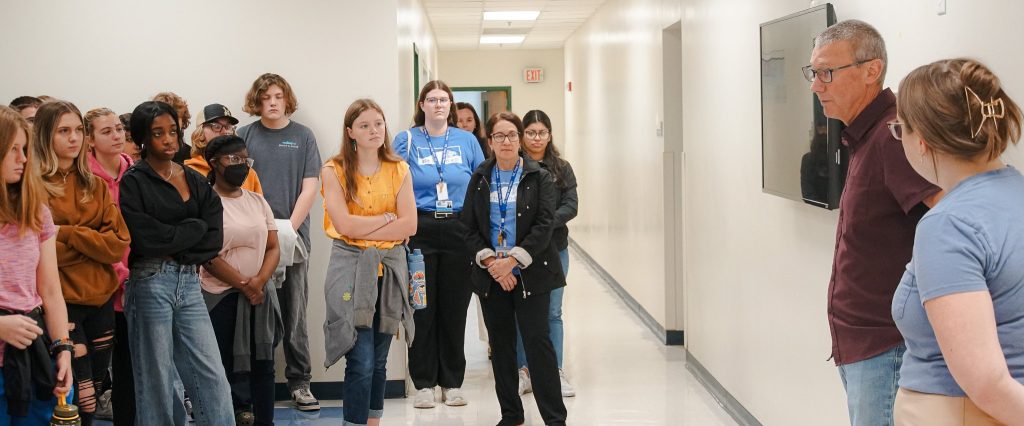
*Learn more about FSHN’s renowned programs below:
Undergraduate Programs:
Dietetics
Food Science
Nutritional Sciences
Graduate Programs:
M.S. Dietetic Internship Program
M.S. Food Science and Human Nutrition
Ph.D. Food Science
Ph.D. Nutritional Sciences
*In our Research Journeys Series, we follow FSHN graduate students’ research in food science and nutritional sciences:
M.S. Food Science
M.S. Nutritional Sciences
Ph.D. Food Science
Ph.D. Nutritional Sciences
*In our Discover FSHN Series, we highlight the unique experiences of UF’s Food Science and Human Nutrition students, faculty, staff, and alumni. Explore our features below (click on arrows to expand):
Undergraduate Students:
Graduate Students:
Postdoctoral Associates:
Faculty:
Staff:
Alumni:
by Jessie Erwin
by Morgan Pinkerton
Source: UF/IFAS Pest Alert
Note: All images and contents are the property of UF/IFAS.



